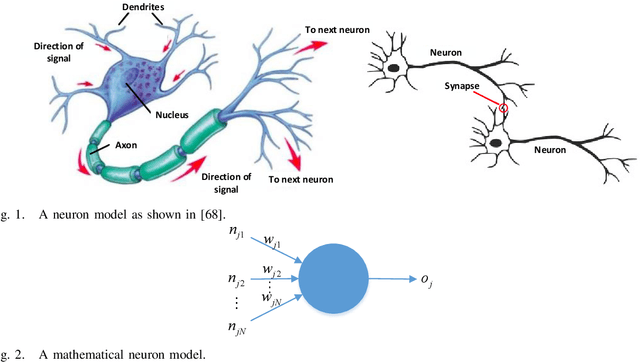Machine Learning for Wireless Networks with Artificial Intelligence: A Tutorial on Neural Networks
Paper and Code
Oct 09, 2017



Next-generation wireless networks must support ultra-reliable, low-latency communication and intelligently manage a massive number of Internet of Things (IoT) devices in real-time, within a highly dynamic environment. This need for stringent communication quality-of-service (QoS) requirements as well as mobile edge and core intelligence can only be realized by integrating fundamental notions of artificial intelligence (AI) and machine learning across the wireless infrastructure and end-user devices. In this context, this paper provides a comprehensive tutorial that introduces the main concepts of machine learning, in general, and artificial neural networks (ANNs), in particular, and their potential applications in wireless communications. For this purpose, we present a comprehensive overview on a number of key types of neural networks that include feed-forward, recurrent, spiking, and deep neural networks. For each type of neural network, we present the basic architecture and training procedure, as well as the associated challenges and opportunities. Then, we provide an in-depth overview on the variety of wireless communication problems that can be addressed using ANNs, ranging from communication using unmanned aerial vehicles to virtual reality and edge caching.For each individual application, we present the main motivation for using ANNs along with the associated challenges while also providing a detailed example for a use case scenario and outlining future works that can be addressed using ANNs. In a nutshell, this article constitutes one of the first holistic tutorials on the development of machine learning techniques tailored to the needs of future wireless networks.
 Add to Chrome
Add to Chrome Add to Firefox
Add to Firefox Add to Edge
Add to Edge